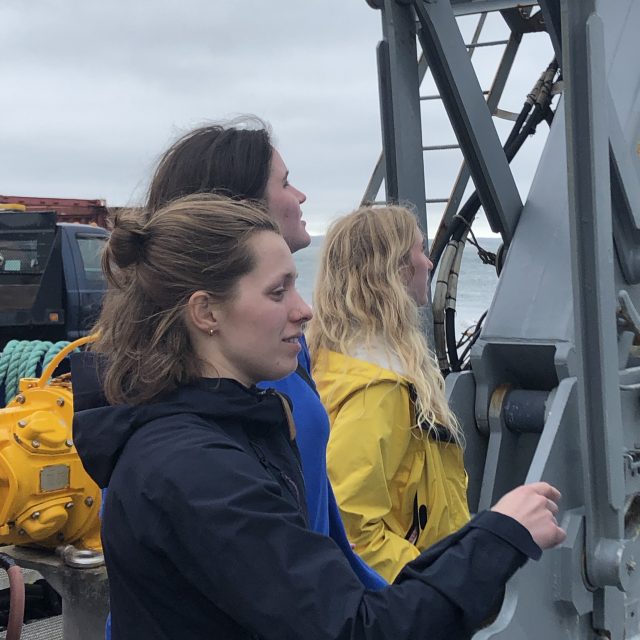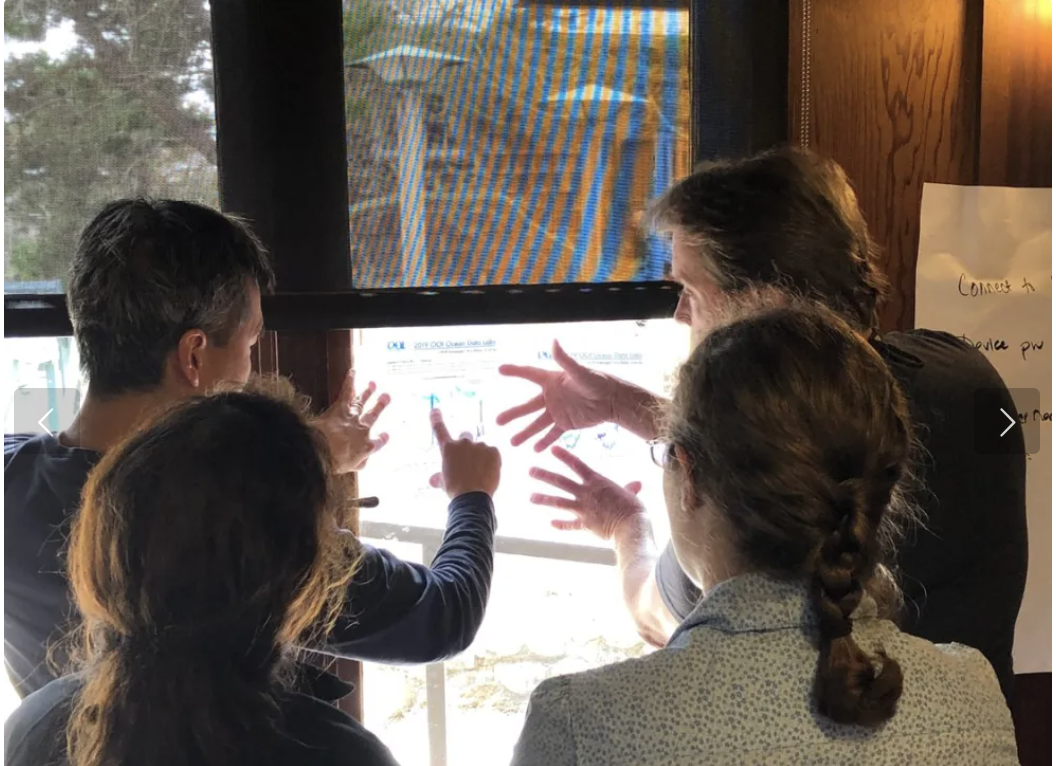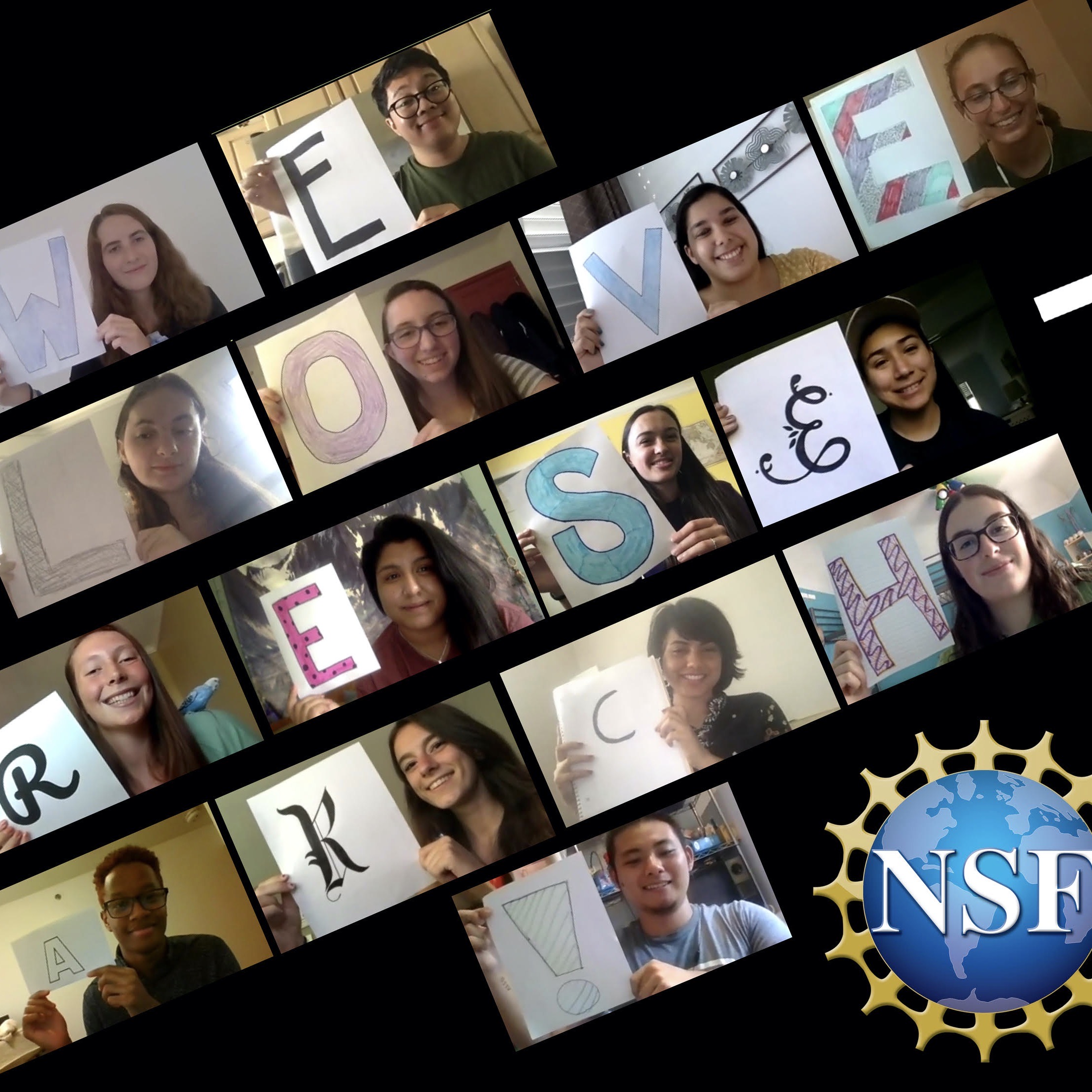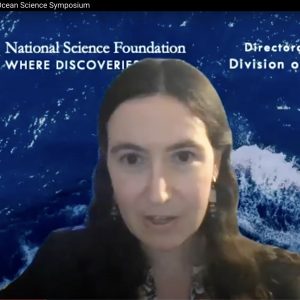Early Career Scientists
Survey to Help First-Timers at Sea
Meg Yoder, a 4th year PhD student at Boston College is writing a general guide to going to sea for first-time, sea-going scientists, particularly those not housed at oceanographic institutions working for the broader impacts chapter of for her dissertation. She is collecting information from both early career researchers and experienced researchers using a survey here.
Meg was inspired to write this guide based on her experience going to sea for the first time two summers ago. She could find little information online about what the actual sea-going experience would be like, and what found was often outdated or very specific to certain vessels or cruises.
Please take a few minutes to complete the short survey. Your input is important so Meg can understand what other early career researchers are interested in hearing about prior to going to sea.
[media-caption path="https://oceanobservatories.org/wp-content/uploads/2024/06/IMG_1544-scaled.jpg" link="#"]Meg Yoder (foreground) shows two Boston College undergraduates the back deck of the R/V Neil Armstrong prior to their departure for the Irminger 11 expedition. Credit: D Trew Crist © WHOI. [/media-caption] Read MoreFunding Opportunity for OOI Education, Workshops, Training Proposals
To encourage wider use of OOI data by researchers and educators, the Ocean Sciences Division (OCE) of the National Science Foundation is seeking proposals for projects that use OOI data. Funding is available to support workshops, conferences or other training events that introduce researchers and educators to the type of data available through OOI and community tools that have been developed to use that data.
A Dear Colleague Letter (NSF20-047) issued in early 2020 remains in effect.
“We are seeking to support efforts that teach researchers or educators how to use OOI data and tools, that develop additional tools or instructional materials using OOI data or that serve to create communities of practice to use OOI data for multi-investigator, community-driven research, “ said Elizabeth Rom, an OCE Program Director who oversees a number of NSF educational initiatives.
At a recent town hall of the Ocean Observatories Initiative Facility Board at the AGU Fall Meeting, Rom presented a progress report on proposals funded since May 2020. These include:
- Two Ocean Hack weeks held at the University of Washington and Bigelow Laboratory for Ocean Sciences. In 2020, the workshop was virtual, in 2021 the workshop was a hybrid.
- OOI Biogeochemical Data Workshop, which consisted of an online meeting in July 2021 and plans for an in-person meeting for June 2022 at Woods Hole Oceanographic Institution.
- K12 OOI Workshop Series that involves the South Kitsap School District in Washington state and Deb Kelley at the University of Washington. The goals of the workshop series are to develop teacher cohort and lesson plans using OOI data in classrooms. The series launched in early December with virtual and in-person sessions planned throughout 2022.
She also reported on progress in course development, including support of a second cohort of faculty to develop version 2 of the Ocean Data Lab’s online manual, microbial monitoring using OOI RCA remote samplers at Axial Seamount, and development of instructional materials and piloting assessment instruments to explore undergraduate scientific literacy. NSF programs GeoPaths (Pathways into the Earth, Ocean, Polar and Atmospheric and Geospace Sciences) and Research Experiences for Undergraduates (REU) sites also provided opportunities for using OOI data. An initiative to broaden the scope and increase the efficacy of the SERC Discovery System was supported, as were multiple REU student projects in 2020 and 2021.
“While COVID served to discourage in-person meetings and workshops, we were pleased that so many innovative approaches were proposed,” added Rom. “Hopefully in 2022, we will have opportunities to for virtual, hybrid and in-person workshops, and certainly the innovation of this community will shine through.”
Two- and four-year U.S. institutions of higher education and U.S. non-profit non-academic organizations are eligible to submit proposals. Proposals may be submitted at any time, but Principal Investigators are encouraged to submit at least six months prior to the planned event. Submission details are available here. While the DCL refers to Fiscal Year 2020, it continues to be in effect until canceled.
Read MoreEight Weeks of Intensive Virtual Learning
Two weeks. That is the amount of time Janice McDonnell and Sage Lichtenwalner, Co-PIs of the OOI Ocean Data Lab Project, had to create an eight-week intensive, hands-on virtual program for Research Experience for Undergraduates (REU) students, who couldn’t attend their original programs due to COVID-19 restrictions. McDonnell and Lichtenwalner jumped in with both feet and successfully pulled together a program for 16 undergrads from 16 institutions that will wrap up on July 31st. Not only did they have to develop a curriculum in short order, they recruited 17 mentors, who provided one-on-one mentoring for each of the REU students.
In 14 days, McDonnell and Lichtenwalner, working with colleagues at the Rutgers RIOS REU, developed a curriculum, which included two two-hour workshop sessions on Zoom every day for the first two weeks. The workshop was followed by six weeks where students focused on a research project using oceanographic data to answer a scientific question. They were helped by REU leaders and mentors along the way.
The initial workshop focused on students using a “baby data set” before working on something as complex as an OOI dataset or other similarly large dataset. “Initially, we gave them mini research projects that could be done in two weeks. This allowed the students to be collaborative and interactive, while learning Python as a tool using data to answer questions about the ocean,” explained McDonnell.
The key to the program’s success was keeping it engaging. The curriculum mixed up content, approach, and activities to ensure students stay involved on and off the screen. The team used a tactical approach – starting where students are and building upon their level of understanding. They incorporated a lot of different approaches, including think-pair-shares and an activity from the Right Question Institute, another NSF-funded project, which guides people to ask better research questions.
“We were constantly looking for opportunities to be interactive, reflective, and to give students the opportunity to apply their knowledge,” added McDonnell.
Another technique used were Zoom breakout groups to supplement group interaction. These breakout sessions provided students with opportunities to work together, with mentors, and to get to know each other.
Breakout sessions were also used to meet members of a career panel in virtual personalized sessions.“The career panel for this REU cohort was much more diverse than it is typically. The virtual nature of the interaction made it possible for people from all over the country to join in and participate,” said Lichtenwalner. “We facilitated it in a nice round robin sort of way using Zoom’s breakout function. Students chose their top choices, then met with them either individually or with another student. This gave them an incredible opportunity to meet people in careers that they might not otherwise have access to.”
“I’m really proud of our REU,” said McDonnell. “It’s not easy to teach online but good learning can, and does, happen online and we were able to do that. And the collaboration that took place was really the secret sauce for making this all work. NSF program officer Lisa Rom and Science Assistant Rennie Meyers were committed to and worked really hard to find a solution to make the REU program happen in the middle of a pandemic. The students were great and so excited about the opportunity that we put together for them. And, the mentors went above and beyond the call of duty to help make this program work for the students.”
Each week, for example, one mentor, Dr. Jessica Carriere-Garwood, of Rutgers University introduced her students to people in her professional circle at lunch time each week, with the opportunity to talk about what the students are doing and their interests. “That doesn’t always happen in a regular REU. There are a lot of pluses and minuses of being virtual and this was certainly one of the pluses,” added McDonnell.
Ed Dever, one of the mentors from Oregon State University, had this to say about his mentoring experience: “Janice and Sage did a remarkable job spinning this REU up on short notice. They mentored not just the students, but the mentors (well, at least this mentor!). Janice, Sage, and Christine Bean did an amazing job of building a virtual community of students and mentors on the fly. This virtual community provided a unique experience to the students in that the community was much broader than an in-person REU at a single institution. It took all of us out of our comfort zones and helped us grow. Throughout the whole process, Sage patiently guided REU students in technical aspects of using Python to access and analyze data.”
The REU cohort will finish their research projects and present on 30-31 July. Of the 16 students, eight are using data from the OOI.
Citing the success of this first virtual REU, the team’s National Science Foundation (NSF) program officer Rom pondered “Why don’t we do this all the time, even if there isn’t a pandemic?“
Based on the successful experience this summer, NSF’s Division of Ocean Sciences is encouraging REU proposals for virtual REU’s, and especially those that use OOI data. The deadline is August 26th this year. Apply here.
Read More2020 Frontiers in Ocean Sciences Symposium
Assistant Professor Hilary I. Palevsky, Boston College, Department of Earth and Environment, was a presenter at the National Science Foundation’s Geosciences Directorate Division of Ocean Sciences 2020 Frontiers in Ocean Sciences Symposium, which was held virtually on 18 June 2020. In her presentation, New Insights into the Ocean Carbon Cycle for Novel Platforms and Partnerships, Palevsky told of ways she has used and plans to use OOI data from the Irminger Sea Array to advance understanding of the global biological pump. Watch her presentation, beginning at 56:54.
Read More



